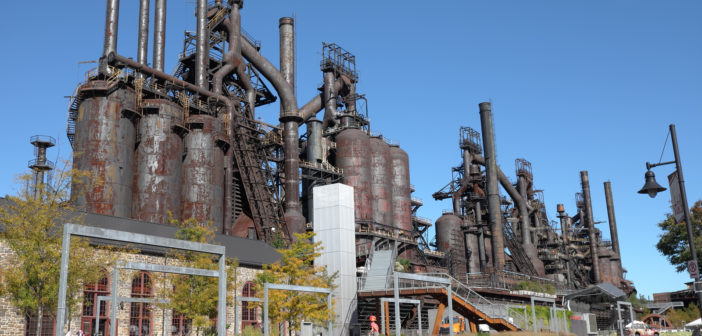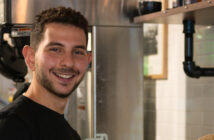Sister cities are foreign cities with which Bethlehem forms alliances to exchange cultural ties, including gifts, visitors and students. Currently, Bethlehem has five sister cities: Tondabayashi, Japan; Schwäbisch Gmünd, Germany; Corfu, Greece; Foiano Di Val Fortore, Itay; Murska Sobota, Slovenia.
Each sister city was founded on a basis that echoes Bethlehem’s history of diverse immigrants.
“We were really a city of immigrants,” said Lisa Baker-Moretz, the vice president for Murska Sobota’s Bethlehem Commission. “Bethlehem Steel created opportunities for so many different ethnicities to come, and all you have to do is walk down south Fourth Street and look at the variety of the churches.”
However, Baker-Moretz said the commission lacks younger membership, which raises concern. She said as people become fourth or fifth-generation Slovenian, they are less likely to participate in the commission.
“Our mission is to maintain a cultural exchange program to promote our ethnic heritage within our communities,” Baker-Moretz said.
The Foiano Di Val Fortore alliance was created over 100 years ago when Italian immigrants working at Bethlehem Steel and various knitting mills formed the Society of St. Peter, according to the City of Bethlehem website.
The Schwäbisch Gmünd commission in Bethlehem connects German music, theater and art to Bethlehem.
Bethlehem City Council established the Bethlehem Tondabayashi Sister City Commission in 1972, “to promote friendship and understanding between Bethlehem and Tondabayashi, to exchange cultural interests, to promote trade interests and tourism and to oversee a Student Exchange Program,” said Joe Narkevic, chair of the Bethlehem Tondabayashi Sister City Commission.
He said most commission members have a connection to Japan, and they joined the commission because they value their connection. He said there are currently eight members.
“The Tondabayashi sister city was created when businessmen from Bethlehem were visiting Tondabayashi,” Narkevic said. “One of the city’s principal products that they created was glass balls that were used to make Christmas ornaments.”
Narkevic said because Bethlehem is known as the “Christmas City,” the businessmen were interested in this connection and wanted to be involved.
The Tondabayashi commission hosts the Cherry Blossom Festival, student exchange program, garden ceremonies, and Japanese lessons, Narkevic said.
Tondabayashi gifted Bethlehem a japanese garden next to the library and cherry blossom trees around town, Narkevic said. Murska Sobota gifted Bethlehem an art and monument also outside of the library, said Gene Novak, the president of the Murska Sobota Commission.
Today, the Tondabayashi, Schwäbisch Gmünd and Murska Sobota sister cities have active commissions in Bethlehem that fundraise for student exchanges, host events and hold annual meetings.
Novak is the president of the Murska Sobota commission and joined as a trustee when it was founded in 1995, because his dad was a Slovenian immigrant.
Novak said there are over 100 members in the Murska Sobota commission.
One event the commission hosts, Novak said, is a flag-raising ceremony around the anniversary of Slovenia’s independence.
“Since 1996, we have brought a student over for three weeks all expenses paid, and my wife and I have hosted many of them,” Novak said.
The commission makes this possible through membership dues of $10 and fundraisers, Novak said.
“It’s a lot about learning from each other and kind of opening up your world view, and having an interesting cultural experience and enriching people’s lives,” Narkevic said.






Comment policy
Comments posted to The Brown and White website are reviewed by a moderator before being approved. Incendiary speech or harassing language, including comments targeted at individuals, may be deemed unacceptable and not published. Spam and other soliciting will also be declined.
The Brown and White also reserves the right to not publish entirely anonymous comments.